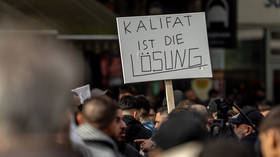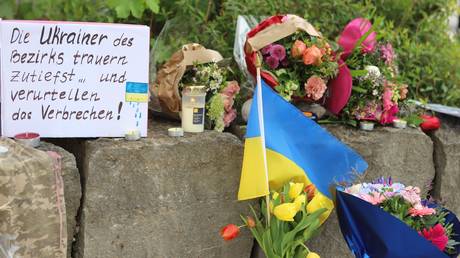Germany’s Pivotal Moment in History
from Rogue Money:
 Germany’s pivotal moment in history is clearly upon us.
Germany’s pivotal moment in history is clearly upon us.
The infiltration of Germany, since its very inception as a nation in 1870, by the cabal was to ensure their worst possible nightmare of a Berlin – Moscow economic and political axis would never come to pass. If you add Beijing into that equation then that nightmare would become a living demolition of all that the cabal aspired and dreamt of leading to the resurrection of the new Silk Road which would then extend right across Europe in a new economic, social and political paradigm which was about everything US Hegemony was not, namely mutual cooperation between all nations to achieve desired goals which would benefit everyone instead of a chosen elite and their unholy trinity of death, destruction and grand larceny.
The Treaty of Versailles, after WW1, was a precursor to Germany’s inevitable economic ruin which would lead to the Weimar Republic and the birth of Nazism, the Third Reich and Hitler, who was bankrolled into power by the New York-based Union Banking Corporation (UBC), culminating in the outbreak of WW2. Germany was eventually broken up by design,after WW2, as the cabal where terrified what a United Germany might do in the future. When Germany want reunification there was an agreement put in place in 1990, namely the future adoption of the European Union and the single Euro currency, at the behest of Washington, whilst they continued to remain a vassal state of the US.
Despite its position of prominence within the EU, Germany has paid a huge price given it remains to this day a vassal state of Washington. Merkel is now deeply unpopular with both commerce and lawmakers, not least given that Germany has thousands of companies with a presence in Russia who have been hit by the economic sanctions imposed by the EU with regards to the Ukraine and the Minsk 2 agreement. Furthermore it should be noted that Russia has a strong presence in Germany, which has equally been affected by these sanctions that were a dictat via Washington.
In recent months we have seen evidence of a split within the political ranks within Germany via the announcement by the Bavarian State premier Horst Seehofer, a prominent ally of Merkel, who threatened to take the German government to court over its deeply unpopular open door refugee policy. Furthermore we have seen the German foreign minister Steinmeier call for a return to institutionalised discussion for the reinstatement of the NATO –Russian council and that he was pleasantly surprised to see that there was significant support for such a move amongst members.
Furthermore, Steinmeier stated that Russia has played an important role in reaching a ceasefire agreement in Syria, providing access for humanitarian aid and starting peace talks in Geneva. “The truce, the provision of access for humanitarian aid and the start of the peace talks in Geneva – all this would have been impossible to implement without Russia’s constructive participation,” Steinmeier said. The talks between the West, Russia and Mideast countries in Vienna and Munich played an important role in the efforts for the political settlement of the Syrian conflict, the German foreign minister said. “Indeed, Russia is pursuing its own, quite different interests in Syria – ensuring the protection of the military base. This also relates to the creation of its own spheres of influence. But Russia is not interested in the long-standing chaos and the full destruction of state structures in the Middle East,” he continued.
In another clear indication of a growing split with Washington, Germany’s main intelligence agency, the BND, announced it had renewed its intelligence sharing program with the Assad government in Syria and did not intend sharing this information with Washington. [The Germans also completed the withdrawal of their armed forces from the U.S./NATO Incirlik Air Base in Turkey this week — JWS]
The Russian- German Chamber of Commerce expressed a desire to see anti-Russian sanctions and Russian counter-sanctions removed to rebuild trust. German business exports to Russia decreased by 25 percent in 2015. The total value of trade between the two countries decreased from almost 53 billion euros ($60 billion) in 2014 to 41 billion euros in 2015, including an 18 billion euro decrease in German exports to Russia.



